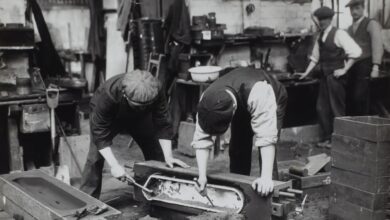The Importance of the Steel Industry

Known for its strength and durability, steel is used for a seemingly endless number of applications in many different industries, from kitchen appliances for homes to heavy machinery for large industrial facilities, and because of the many valuable qualities of this metal, the steel industry has a great positive impact globally.
Having greater elasticity than even rubber, steel is a workable and versatile alloy. It has a high level of corrosion resistance. Steel also has high thermal conductivity. And these are only some of its superior properties as a metal alloy.
Being a relatively low-cost material, steel is accessible to businesses that need strong materials for their products for a reasonable price. And even though concrete is a cheaper material, in many cases steel will still win out in terms of long-term cost because of its great durability.
Steel is used in the manufacturing of computers. It is used in the brewing industry and is known for yielding the best taste for such products. Plate steel Tulsa OK is what makes up the structure of locomotives. Steel is used in the manufacturing of all kinds of infrastructure, from skyscrapers to roads. Piano strings are made with high-carbon steel. Steel is popular for design and art-related uses such as framing, welding art and sculpture. And, of course, steel is used to manufacture such household tools as nails and screws.
Valued at about $900 billion, the steel industry is the second-largest industry globally, employs millions of people worldwide and supports many other industries that rely on it to function at their best, including the automotive, packing, housing and renewable energy industries. Companies in the steel industry have been particularly involved in trade that has helped developing countries.
Of the many alloy materials available, steel has made its mark across the globe as a reliable building block in countless contexts. Like the material itself, the steel industry will likely remain strong for a long time to come.









